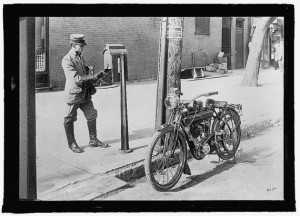The Postman Only Had To Ring Once
 What a beautiful public love letter to an art that appears to be lost, but not quite. This writer, sharing his thoughts with who knows who, also longs for the intimacy of the exchange of words between two. What strikes me most about this essay are the words: “The day I lost one of J.’s illustrated postcards in the subway on my way home, I was as distraught as I would be now if my hard disk crashed.”
What a beautiful public love letter to an art that appears to be lost, but not quite. This writer, sharing his thoughts with who knows who, also longs for the intimacy of the exchange of words between two. What strikes me most about this essay are the words: “The day I lost one of J.’s illustrated postcards in the subway on my way home, I was as distraught as I would be now if my hard disk crashed.”
No, I would not say like “my hard disk” crashing. Not that at all. That least of all. That is an anxiety unique to this age of data-exchange, the reduction of all words, whether committed to hard-drive with care or hastily-strung-together, to an assemblage of giga-bytes. That feeling is equivalent to the boss berating you for losing an “important document”, no matter how important to you this hard-drive may be.
I have kept letters that are close to my heart, letters that mark milestones in my life and recollect those in the lives of those for whom I care, those who I remember, whether or not they remember me. I have lost some of these, in the jumble of our “modern” state of statelessness, placelessness. With each loss I knew I had lost a marker. Not that the object itself was a loss it itself. It was a loss because it has meaning in and of itself. The words, which were written with care and thought, sometimes in friendship, at times in love, are irreplaceable in a way that a hard-drive could never be. Letters brought more than news, or, rather, they defined a notion of news that many no longer regard as relevant. The postman only had to ring once.
Dropping these fragments in the subway would mean losing a piece of the dialogue that once existed, a fragment that could not have been spoken in words, and which cannot ever be committed to memory in the way that we can store passwords to social media sites, the literary equivalent of fifty shades of grey. Not even the spoken word can “reveal” itself in the immediacy of dialogue. We need to filter the maelstrom of spoken intonations, throw away thoughts, carelessly aimed barbs, fluff. In other words, we need to “process”, in the pseudo lingo of the day, as if the spoken word is something to receive like a legal brief, rather than to share in a collective act of interpretation.
So perhaps it is not only the written word that is fading, the medium for committing our most intimate thoughts. With that loss we risk losing the art of listening, rather than merely hearing as one does in a noisy room. We have turned listening into hearing, the ear into a portal to matter, and that extraordinary matter into a measurement of our relative sanity. Who has not heard the claim that we use perhaps 12-15% of our brains, “on average”? What better measure of our language of median lines. In this age of brain science thought, itself is losing its tragic quality, as we learn that the biological organ with which we think is also the locus of our deepest emotions, and we again take refuge in “spirit” to quell a fear inspired by our eternal finitude. Hang onto those letters and postcards. The brain has a sell-by date. The words it shapes into a personal declaration between two people do not.
About the author
Prof.dr. Anthony Court – Researcher, Genocide Studies, University of South Africa